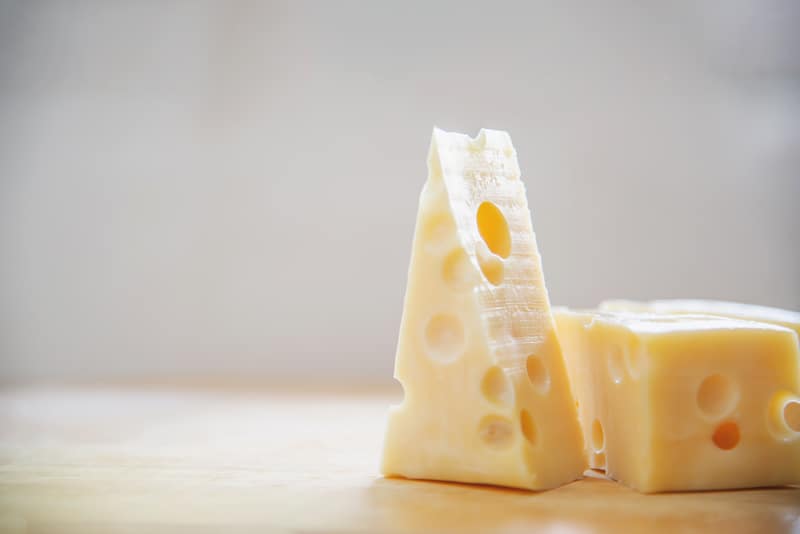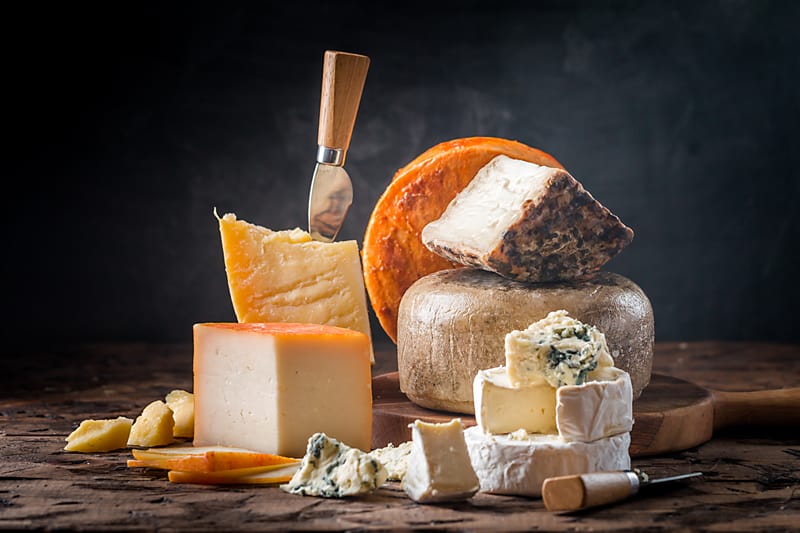Almost every person has declared their love for cheese at least sometime during their life. It is perfect with toast, pasta, spaghetti, chops, and even chocolate! So when we heard of a new anti-cancer property of this pro-biotic-filled stinky mush we couldn’t be happier. However, the anti-cancer property of cheese is contributed by a preservative. With the recent trend of restaurants and big labels landing in hot water for excessive use of preservatives, people never thought they would celebrate a preservative like this ever before. Nisin is a natural preservative that is found in cheese. People knew about its bio-preservative properties for decades, but they never explored beyond the apparent properties of this compound.
What we already know:
Before we laud the anti-tumor and cytotoxic effects of cheese, let us reiterate a few of the other good qualities of this dairy product that have been known for centuries now. Among the many other benefits of cheese that have been preached and popularized for centuries, a few include:
- Calcium absorption and distribution in the bones.
- Improvement of dental health from better calcium absorption.
- Prevention of osteoporosis.
- Better digestion with the help of probiotic bacteria.
- Control of bad cholesterol and sodium.
Introducing a New Superhero:
Cheese is filled with bacteria from milk and other secondary bacteria which come from the environment where they are stored and fermented. In fact, it is the varied strains of bacteria that give the cheese its distinct color and flavor. The University of Michigan recently carried out a study that proves the anti-cancer properties of cheese. Nisin is a preservative that grows naturally in cheese. This is the component that gives the cheese its apoptotic property. Nisin has also been shown to kill some of the most antibiotic-resistant strains of disease-causing bacteria including life-threatening Methicillin-Resistant Staphylococcus aureus. MRSA is one of the leading causes of deformity and amputation in the American population. This usually starts out as common garden Staph bacteria which can infect open wounds. MRSA is a serious threat even for healthy people as it spreads by direct contact with an infected person.

According to a detailed study published in the Journal of Antimicrobial Chemotherapy, natural components in cheese can fight up to 30 different types of cancer. Nisin is a bacteriocin that is produced by naturally occurring bacteria like Streptococcus and Lactococcus which are usually found in cheddar, Brie, and Camembert varieties of cheese. Over the past few decades, Nisin has been used as a GRAS preservative in food. It is also FDA approved which makes work and subsequent research with the Type A Lantibiotic much easier. This is a ray of hope for the millions around the world who have been diagnosed with cancer. Currently, the resources available for cancer treatment are more or less restricted to chemotherapeutic drugs with deleterious side effects. The extreme specificity of Nisin promises targeted treatment with minimal side effects. Since Nisin is a natural compound and our body is already acquainted with it, the chances of adverse reactions from Nisin therapy are extremely minimal. The current studies show the prospects of Nisin being a cancer-killing drug that can be administered to almost all age groups. It is also a commonly produced compound that promises to bring down the entire cost of cancer therapy for millions.
How Does Nisin Kill Cancer Cells?
The aim of the study was the see the effects of Nisin isolated from cheese on rat tumors. These tumors were induced in rats by common carcinogens which are mostly responsible for creating malignant tumors in mammalian systems. Different increasing doses of Nisin on the isolated tumor cells showed increasing anti-tumor properties in an in vitro system. In another study, the rats with induced tumors were given a “milkshake” containing varying doses of Nisin. The composition was made such that the concentration of Nisin was far more than that naturally obtained from a regular diet. The results showed a drastic decrease in the number of tumor cells by 70 to 80 percent. The rats also went on to live a longer and healthier life than the negative control groups which did not receive the Nisin “milkshake”.
Journal of Applied Microbiology states that Nisin has the potential to activate the adaptive immune response and Cytotoxic T-Cells of a mammalian system to combat disease-causing microbes. This naturally occurring antibiotic can also kill gram-negative bacteria and show selective cytotoxicity towards malignant tumor cells.
The One-Two Punch:
Yvonne Kapila, M.D, University of Michigan was quoted saying, “no bacteria has been found in the human system till now which is completely resistant to Nisin.” This opens up a huge opportunity for new studies on antibiotic-resistant bacteria. This is usually accomplished in 2 neat steps. In the first step, this compound specifically binds to the harmful bacteria which cause the diseases in the mammalian systems before they can mutate to superbugs. The second step mainly comprises a direct attack on the bacterial colonies. These colonies are collective structures made by the same strain of drug-resistant bacteria which reinforce the disease resistance pathways.
So what are we waiting for?
Although the current studies hold a lot of promise, the studies are currently restricted only to rats. Human case studies are still too farfetched and they usually take decades to process. The immediate next step for the researchers is to directly test the isolated compounds like Nisin on carcinoma cell lines and disease-causing superbugs which loom like an apocalyptic threat to the entire human population.
Just like any other promising treatment and drug, this will possibly take years if not decades to come to market. In the meantime, people can surely resort to eating cheese by the wheel and making mac n cheese their new religion. In reality, cheese tastes really good with or without wine and now we have a good excuse to pamper ourselves every day with tons of pure white gold without feeling the least bit guilty.
Editors note: Updated 7/30/23.
References:
Yvonne Kapila, a professor at the University of Michigan School of Dentistry. Kapila has studied nisin in cancerous tumors and as an …
Hcplive 2. Good News for Cheese Lovers, Kill Cancer with Dairy Preservatives – HCPLive
Yvonne Kapila, MD, professor at the University of Michigan School of Dentistry, and colleagues studied nisin in cancerous tumors and as an …
Delish 3. A New Study Says Cheese Can Help Kill Cancer Cells – Delish
According to a new study by the University of Michigan, nisin—a peptide born from the bacteria Lactococcus lactis found in dairy products …
Pharmacytimes 4. Good News for Cheese Lovers, Kill Cancer with Dairy Preservatives – Pharmacy Times
Yvonne Kapila, MD, professor at the University of Michigan School of Dentistry, and colleagues studied nisin in cancerous tumors and as an …
Nisin — a preservative found in Brie, cheddar and Camembert — was found to greatly reduce cancerous tumors in rats, according to a new study.
© 2016-2023 by DietFind.com, a LIVenture LLC.
All rights reserved. No part of this document may be reproduced or transmitted in any form or by any means,
electronic, mechanical, photocopying, recording, or otherwise, without prior written permission of LIVentures LLC.

